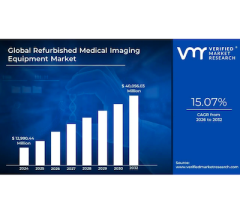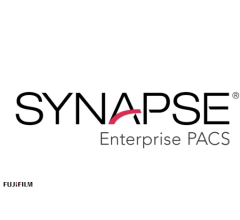
February 11, 2022 — In a motion for summary judgement recently filed, the American College of Radiology (ACR), American College of Emergency Physicians (ACEP) and American Society of Anesthesiologists (ASA), argue that the interim final rule (IFR) created by the U.S. Department of Health and Human Services (HHS) turned the balanced and fair reforms of Congress’ No Surprises Act upside down and transformed the act intended to protect patients and their physicians into a giveaway for private insurers.
“Without regard for patient impact, insurers are using the federal rule to narrow provider networks, which will deny patients’ access to their chosen providers and inflate already record insurer profits,” said Howard B. Fleishon, MD, MMM, FACR, chair of the American College of Radiology Board of Chancellors. “Rural and underserved communities may be hit hardest by this overreach that can result in longer wait times for care, delayed diagnosis and higher out of pocket costs to treat more advanced conditions. The court can stop this now by granting our motion for summary judgement.”
“The regulatory language guiding the implementation of this law is fundamentally flawed and must be addressed,” said Gillian Schmitz, MD, FACEP, president of ACEP. “Rather than the compromise meticulously crafted to solve surprise bills as Congress intended, the administration has turned this law into an open invitation for insurance companies to strongarm physicians out of network.”
“The IFR established by the administration will hit anesthesiology, radiology and emergency medicine hard across the country, especially in small, rural or marginalized communities,” said ASA President Randall M. Clark, MD, FASA. “Some practices will be forced to make difficult decisions on how to spread thin resources to continue to treat all patients safely.”
The No Surprises Act gives patients financial protection against surprise medical bills and prohibits balance billing for certain out-of-network services or care. In the law, an independent dispute resolution entity is required to consider six factors when determining the payment amount for out-of-network bills:
- The insurer’s in-network rate, known as the qualifying payment amount.
- The provider’s training, experience and quality of care.
- The provider’s and insurer’s market share.
- The acuity and complexity of the care.
- The provider’s teaching status, case mix and scope of services.
- The good-faith efforts of the provider and insurer to contract in-network rates.
What the administration did instead was “set one factor—the insurer’s in-network rate—as presumptive,” according to the motion for summary judgement. “The IFR’s presumption in favor of insurers’ in-network rates will empower private health insurers to drive down payment, imperiling physicians and their patients’ access to care.”
The motion for summary judgement continued that the IFR, “violates the plain language of the No Surprises Act, exceeds the department’s authority granted by Congress, thwarts the purpose of the statute, is inconsistent with the legislative history of the No Surprises Act, and was promulgated in violation of the Administrative Procedure Act.”
In their filing, ASA, ACEP and ACR ask the court to find the administration’s IFR “unlawful” because it is “arbitrary, capricious, an abuse of discretion, or otherwise not in accordance with law;” “without observance of procedure required by law;” and “in excess of statutory jurisdiction, authority, or limitations, or short of statutory right.”
Health insurers’ net incomes and profit margins have grown each year since 2015 — including record profits in 2020 — even as their costs dropped. Insurance premiums continue to rise. Record insurer profits have not led to reduced premiums for beneficiaries. There is no indication — nor proof — that insurer profit increases gained via No Surprises Act-related network restrictions would result in lower costs to patients.
Neither the lawsuit nor the filing for summary judgement impact patient protections in the new law nor increase patient health care costs.
For more information: www.acr.org
Related content:
ACR Joins "No Surprises Act" Lawsuit to Protect Patient Care


 February 12, 2026
February 12, 2026 









